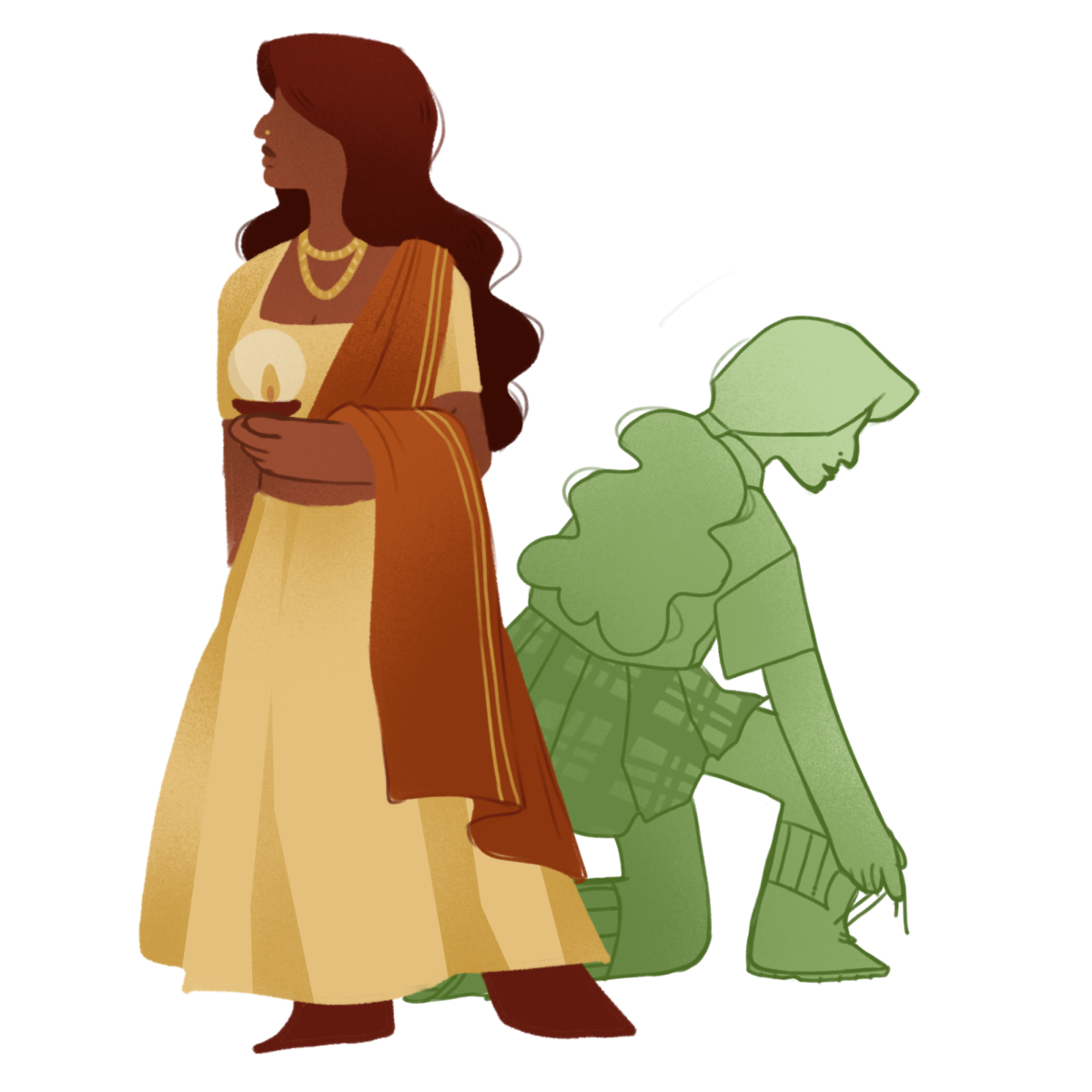
Fun fact: Hockaday has an annual toga party. If you haven’t heard of it, don’t be hurt; it’s quite exclusive. Each April, Latin students from grades seven through 12 gather for the Roman Banquet at graduation terrace to dine not on Caesar salads, but with Caesar himself. Slaves (otherwise known as first-year Latin students) dress up in peasant garb and serve Roman delicacies such as grape leaves and devilled eggs. Reminiscent of the cursus honorem, students sit with their respective Latin levels, with AP Latin at the front of the terrace.
As a sixth-year Latin student, I have been through each level of the hierarchy. From secretly eating food as a slave to ordering a seventh-grader to refill my grape juice for the fifth time, I have attended the Roman Banquet religiously. But what keeps me going back is not the amazing food or the togas; the Roman Banquet reminds me of all the reasons Latin is the language to learn.
All you “live” language-takers are probably scoffing at this article right now, thinking of how there is no use to learning a language that has been dead since the Ottoman Turks invaded Byzantium (that is, a long time ago). But I can and will argue against that. Because I truly believe that taking Latin was the single best decision of my school career thus far.
First of all, learning Latin gives you not only knowledge in a language, but also insight into other subjects; I see the language as a supplement to my education at large. The works you translate are at the foundation of the Western canon; everyone from Nathaniel Hawthorne to T.S. Eliot has studied them. And while I knew my English grammar rules, I only started to understand their logic after taking Latin. Without putting much focus on it, I have inadvertently learned the general chronology of Roman history. To get even more interdisciplinary, Latin helped me remember some of the stranger chemical symbols in chemistry (example: Fe is for ferrum, which means iron).
But more importantly, there are many benefits to learning a dead language (though, as every Latin student is trained to do, I could readily argue that it’s the opposite of dead). The irrelevance of colloquial terms paves way for a much more interested vocabulary bank. In fact, our textbook introduced us to at least three synonyms for the verb “to kill” before it even mentioned how to say “thank you” or “yes.” So instead of reading dry conversations about Guillermo’s favorite foods or Jean’s favorite colors, we were learning about murder plots and the escapades of a drunk cook named Grumio. In fact, reading the Cambridge Latin Course passage when “Grumio est ebrius” seems almost like a rite of passage, something that many Latin students will refer to upon meeting. The character has even garnered a following on Facebook.
Because Latin is not as readily popular as Spanish or French, the culture around taking the language has fostered a small but devoted community at Hockaday and even across the country. It is one I am sad to be leaving. But it is also one I will take with me wherever I go, whatever I do.
-Kristin




